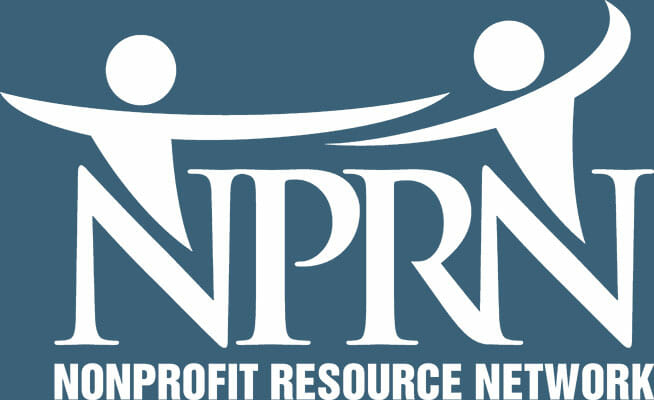 Hutton Parker Foundation strives to provide organizational sustainability to community-based nonprofit organizations throughout Santa Barbara County and to assist agencies in achieving their highest level of performance and delivery of services resulting in stronger, more efficient communities for all.
Hutton Parker Foundation strives to provide organizational sustainability to community-based nonprofit organizations throughout Santa Barbara County and to assist agencies in achieving their highest level of performance and delivery of services resulting in stronger, more efficient communities for all.
The Foundation specializes in providing quality office space for local area nonprofit organizations through the acquisition and development of commercial real estate properties. Read the latest interview from the Grant Center’s Write Team.
The Hutton Parker Foundation is going through some changes since Robyn Parker left the organization. Can you explain how non-profits will be affected?
Robyn Parker, our program officer, has left the Foundation because she wanted to be a full-time mom. But basically everything will still be the same. We are still planning to have two funding cycles, and it will be the same online process. We will be replacing Robyn, but we are working on restructuring the position so that it can be part-time.
How does the Grant Selection Committee work?
When Tom and I were setting up the grant program originally, neither of us had non-profit or foundation experience, so we decided to ask community members who work for non-profits to share their insight with us. We absolutely consider non-profit people to be the experts. Our grant selection committee is comprised of these community members, and their responsibilities are to review all applications, attend site visits, and make final recommendations to the board. They usually stay on the committee for 2-3 years.
When reviewing the applications, we use a scoresheet that relates to each area on the application. This scoresheet comes more into play with the initial review of applications–the first cut–to decide if it will go to the second stage. Then we take a vote.
Each committee member has a different opinion about which organizations they want to fund. We have to balance everyone’s opinions. Our meetings are marathons!
How much should grant writers reiterate from one section to another? Is it okay to be repetitive?
Reiteration is fine as long as it’s not the exact same language in each area. There really has to be some reiteration because everything is connected, but each answer should have a slightly different take on it.
What’s the most important thing about the reporting process for non-profits? How would you respond to an organization that didn’t meet its projected goals or objectives?
The most important thing is to actually send in a report when it’s due! A small percentage of non-profits don’t do this, and it does affect their score the next time they submit an application. If you don’t meet your objectives, just tell us honestly what happened. We don’t expect you to meet your goals 100 percent exactly as stated–that’s not real life. Just tell us what your plan is now if you haven’t met the goals. We are wanting organizations to think more broadly and to not have tunnel vision about how they have done things in the past, especially if it’s not working. Pivot when necessary.
Folks can call us any time, we are very open. If you are having issues or experiencing big changes at your organization, please do call or email, even if a report is not currently due. The worst thing is for us to read about a big problem or a change in leadership in the news.
Tell us how you view strategic planning and sustainability in terms of core support.
Core support for us is defined as very strategic and targeted general operating support that will lead to sustainability and increased capacity. To be competitive, you should have a clear plan with identified strategies, and provide enough information to demonstrate that you will be able to implement those strategies.
The other important part is the sustainability piece. We are asking non-profits to have a strategic plan, and you have to show us how it’s going to make you more sustainable. For example, just because you will have a director of development or a new website doesn’t mean you will automatically raise more money. You have to explain HOW you will do it.
For example, one organization submitted a request for core support to fund a piece of infrastructure which was important to this organization, but not necessarily clearly related to sustainability. We asked them to detail how it was a legitimate core support request, and they did a good job explaining it. The part that impressed me the most was the budget they provided. In addition to the operational budget they also gave us a detailed project budget that incorporated the time of every staff person who touched the project in order to demonstrate the true cost of what they wanted to do.
Sustainability is not about raising so much money that you no longer need any foundation support. It’s our job to give money away. We’re not going to stop giving money away! But how your income is broken down is important. Over-reliance on only one type of support is where organizations can get into trouble. If 90 percent of your income is based on government funding, you are not sustainable. That funding is probably going to go away. Likewise, foundation support at the 70-85 percent level is not realistic. It’s about building income from individual donors, bequests, and planned giving.
In terms of strategic planning, we will support all phases of creating a strategic plan, from hiring a consultant to get you started, to implementation of a plan that you are already two years into, to an update or extension of a nearly completed plan. The strategic plan has to involve the board, even if it’s not a super formal process. This is why we ask for a board member to be at the site visit. Everyone pretty much says they have a strategic plan that the board is a part of–and some really believe they do–but it becomes clear through a site visit that some don’t really have this.
I don’t believe we have supported any organizations who don’t have a strategic plan. Some think they have one but it’s not enough for us. On the flip side, some organizations have plans for their organization’s growth, but they don’t have a long, detailed written document to share. As long as there has been a process that involves the board and we can tell that they are working strategically toward growth and sustainability, that can be enough.
What is the Foundation’s perspective on the “overhead” debate? Do you see “overhead” as separate from programs?
We don’t focus on overhead as much now as when we were funding programs. We know that overhead can’t be ignored when funding an organization. Without infrastructure you can’t have a program, and we actually want organizations to strategically invest in some aspects of their overhead–like fundraising. With that said, as an organization ourselves we do try to keep our own overhead down. We don’t have a strict equation for determining a reasonable amount of overhead, but we might question a $200,000 budget of which $175,000 was overhead. We’d be concerned unless there was some reason for it to be so high.
What are some common mistakes or missteps organizations make in applications? We’d love you to share one or two actual stories.
The common ones are applying in the wrong cycle, including incorrect attachments, and applying for program funding rather than core support because they don’t understand what core support is. One organization that is a chapter of a national organization submitted the national budget, even after we told them to submit the local one. Then they said that they were unable to produce a local budget, which was a red flag.
Do you have one tip for non-profits that you’d say is the key to success in grant-seeking?
Communication, contact, and patience. Know that you’re not necessarily going to get a grant with the first application to the Hutton Parker Foundation. It’s all about relationships. It’s not that different than matching donors’ wishes to a program. The primary difference with foundations is that the volume of requests we receive is probably more than an individual receives, so patience is important. We can’t fund everything that comes our way, as much as we’d love to. On the flip side, you don’t need to be timid about asking for funding. Be confident!
Do you think it makes a difference in the outcome if an organization calls to discuss their application beforehand? If so, why?
It might not make a difference in the outcome, but by calling and having a discussion, at least the quality of the application is higher and more targeted toward what we are looking for. And we can tell you which cycle your organization fits into. It’s pretty obvious in an application when an organization has never had a conversation with us.
When you do call, it’s helpful if you have already reviewed the website at the very minimum. We do occasionally get blind calls. Last week someone from New York called looking for funding. But of course we don’t fund in New York! Also have in mind what you want to do with a grant so we can give you relevant feedback. Sometimes after a conversation we are able to tell an organization that they are not ready to apply, which saves them a lot of time. I know people get frustrated if they can’t get in touch with a funder, but I think we are very accessible.
Why are organizations with good strategic plans and track records sometimes declined?
First of all, having to turn down a strong request due to limited resources on our end is horrible. I’ll just say, the committee hasn’t had tears but it’s been close. We only have a certain amount of money, and we have to make hard decisions. Maybe an organization has received a grant from us many times before and another agency has only gotten it once, so we try to even it out a bit.
Sometimes an organization has a solid strategic plan and is doing well, but compared with other agencies, their plans may not be as strong. And sometimes we think a particular organization doesn’t need our support as much as others because they already have a diversified funding stream and are doing well with fundraising. But it’s really hard when we have to say no.

Leave a Response